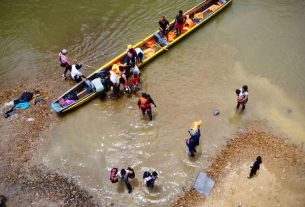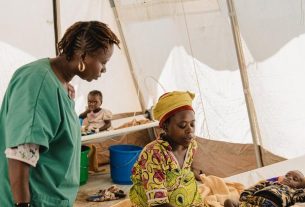Business & Macroeconomics
🇰🇪 Kenya – The government plans to sell a 65% stake in the Kenya Pipeline Company as part of a broader state asset divestment programme aimed at raising $1.1 billion.
🇳🇬 Nigeria – MTN Nigeria reported a 55% year-on-year increase in service revenue, reaching $1.54 billion for H1 2025. In parallel, the federal government has earmarked $644 million for airport infrastructure upgrades nationwide.
Climate & Energy
🇳🇦 Namibia – The country has secured approximately $116 million in 2025 for green hydrogen initiatives, including pilot projects, commercial ventures, and consultancy services.
Geopolitics & Policy
🇸🇩 Sudan – The African Union has urged member states not to recognise the Rapid Support Forces (RSF)-backed parallel government, warning of dire implications for Sudan’s sovereignty and future stability.
🇹🇿 Tanzania – A $1.2 billion uranium processing plant, jointly developed with Russian state-owned firm Rosatom, was officially inaugurated on Wednesday.
🇨🇫 Central African Republic – A controversial referendum has cleared the path for President Faustin-Archange Touadéra to seek a third term, abolishing term limits and extending presidential mandates to seven years. The opposition and civil society organisations have denounced the process as fraudulent and exclusionary.
🇸🇳 Senegal – Prime Minister Ousmane Sonko unveiled an economic recovery plan to be funded 90% through domestic resources. The IMF had frozen Senegal’s loan programme over previously undisclosed debts. External support will be limited to asset recycling components.
🇲🇱 Mali – Former Prime Minister Moussa Mara is under investigation by the cybercrime court over a social media post referring to detained civil society figures as “prisoners of conscience”, suggesting politically motivated detentions.
Security & Diplomacy
🇨🇩 DR Congo / 🇷🇼 Rwanda – The two nations held their first joint oversight committee meeting in Washington since signing a peace agreement. The meeting, also attended by the AU, US, and Qatar, discussed implementation steps including troop withdrawals and joint security coordination. While full execution remains pending, US officials affirmed that the process is still on course.
🇸🇩 Sudan – A coalition of Sudanese civil groups has warned of a humanitarian catastrophe in El Fasher, North Darfur, under siege by the RSF. The coalition accuses the group of war crimes and systematic starvation. Staple foods are depleted, and residents are now surviving on residue from groundnuts and sesame.
Technology & Investment
🇸🇳 Senegal – MidWestern Logistics Company announced a new industrial free zone in central Senegal, supported by $91 million in investor backing.
🇿🇦 South Africa – The Constitutional Court ruled in favour of Vodacom in a dispute over intellectual property with a former employee. Separately, African Infrastructure Investment Managers exited three renewable energy projects, generating $41.8 million in returns.
🇳🇬 Nigeria – Telecom infrastructure vandalism has surged sharply, with over 440 cases since May. Operators report direct confrontations with site engineers and delays in service restoration due to local resistance and ransom demands. The disruption has affected key services including calls, SMS, and internet.
Media & Innovation
🇳🇬 Nigeria – PREMIUM TIMES publisher Dapo Olorunyomi urged media outlets to diversify revenue sources amid growing financial constraints. He cited innovations including crowdfunding, AI-driven content, mobile payments, and hybrid business models as examples from across Africa. Emerging ventures such as AFRIpods and CJID’s AI platforms are also advancing media accessibility and sustainability.
Conservation & Crime Prevention
🇿🇦 South Africa – A new anti-poaching initiative, the Rhisotope Project, has begun injecting rhino horns with traceable radioactive isotopes. The technique enables border detection and is intended to disrupt illegal wildlife trafficking networks without harming the animals.
Sources: africacenter.org, semafor.com



